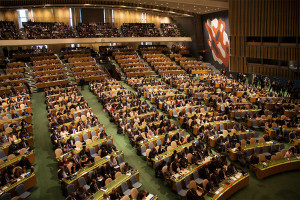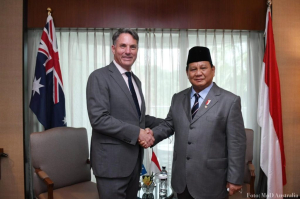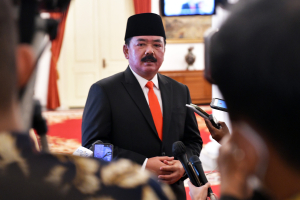Prabowo's standout soldier welfare is “not up to par”
The country’s defense sector has traditionally received the greatest share of the State budget, yet it still falls well short of expectations when it comes to supporting soldiers’ welfare.
In a hearing with the House of Representatives’ (DPR) Commission I on September 25, 2024, Minister of Defense Prabowo Subianto voiced his displeasure with the budget's low proportion to Indonesia's GDP.
“Our GDP is among the lowest in Asian region in terms of defense budget expenditures relative to GDP. It’s a mere 0.89 percent, less than 1 percent," Prabowo said.
A total budget of Rp165.26 trillion (US$10.9 billion) is allocated for the Indonesian Ministry of Defense for the 2025 fiscal year. This amount will be split between the ministry, the Indonesian Military (TNI) Headquarters, the Army, the Navy, and the Air Force.
The 2025 draft budget of Rp155.98 trillion is to be increased to Rp165.26 trillion as the budget ceiling for defense sector.
Despite being the largest recipient of governmental spending, the Ministry of Defense's budget only accounts for 0.8 percent of the GDP.
"Compared to neighboring countries such as Singapore which allocates 3 percent of its GDP, or Vietnam with 2.3 percent, we are still far behind," Prabowo said.
In his view, the defense ministry's budget is insufficient to meet the long-term military plan for the ensuing 25 years, particularly with regard to fulfilling the necessities and welfare of soldiers. He underlined that ensuring the wellbeing of soldiers is a top priority if Indonesia aims to keep up its defense capabilities.
Insufficient wellbeing of soldiers, particularly for privates and non-commissioned soldiers who earn an average salary of Rp3.5 million to Rp6 million per month, is an issue of concern.
In response, TNI Chief General Agus Subiyanto has suggested an extra budget for troops’ welfare, citing performance allowance as an example. As the troops' performance allowance had been 70 percent of their basic wages up to this point, he called for an increase to 80 percent of their basic salaries.
The TNI chief also suggested a minimum monthly professional allowance of Rp500,000 in addition to the 10-percent hike in performance allowance.
“Even though it's not big enough, the rise will expectedly raise the soldiers' standard of living, General Agus told a hearing with the House of Representatives (DPR) Commission I on September 3, 2024.
Since troops are prohibited from getting involved or running businesses, as stipulated in Article 2d of Law No. 34/2004 on the TNI, many of them are compelled to look for alternative sources of income besides their salary as military personnel.
In fact, the biggest defense budget goes for institutional management support, followed by infrastructure and equipment modernization for the military. This defense budget posture makes it clear that there is a limited budget for the development of housing for soldiers throughout Indonesia.
Welfare
Welfare is one of the foundations in preserving the high level of soldiers’ professionalism and morale. If we look at the current budget, efforts to improve soldiers’ welfare do exist, but are still insufficient. Components such as allowances, health facilities, housing, and education for soldiers and their families still require serious attention.
Given that the TNI troops' welfare has not been thoroughly addressed, question on soldiers’ professionalism arises. How can they effectively defend the nation if their basic necessities are not met?
The TNI has won praise of the public, at least based on the results of a survey conducted by the Centre for Strategic and International Studies (CSIS). The survey, held in December 2023, reveals that the TNI has 91.2 percent of the public's trust, more than any other ministries or organizations, including the presidency and the police corps.
A key component of the TNI's positive image should be the wellbeing of its soldiers. However, Defense ministry’s data reveals that the TNI still lacks 237,735 housing units for soldiers, or about 51.7 percent of the total 459,514 units required. Meanwhile, Article 50(2) of the TNI Law stipulates that troops have the right to official housing.
Lifestyle
Khairul Fahmi, co-founder of the Institute for Security and Strategic Studies (ISESS), admitted that there are sensitive issues of lifestyle distinction between field soldiers and high-ranking officers.
“The fact that certain high-ranking officers drive luxury cars indicates a significant disparity in welfare within the TNI. On the other hand, many soldiers still have trouble meeting their basic needs, while others even have trouble getting suitable homes,” Khairul spoke to Indonesia Business Post on September 28, 2024.
“There are undoubtedly concerns about justice in the TNI raised by this phenomenon. Welfare ought to be shared by all, not only by a select group of officers,” he added.
Khairul cited the importance of enhancing budget utilization transparency and rigorous oversight on officers' personal lives.
“Over time, this disparity may negatively impact soldiers' morale, particularly those serving in combat zones. The wellbeing of soldiers must be considered by the government and the TNI institution. “A major factor in closing this gap will be the basic lifestyle models set by high-ranking officers and leaders,” Khairul concluded.
Already have an account? Sign In
-
Start reading
Freemium
-
Monthly Subscription
20% OFF$29.75
$37.19/MonthCancel anytime
This offer is open to all new subscribers!
Subscribe now -
Yearly Subscription
33% OFF$228.13
$340.5/YearCancel anytime
This offer is open to all new subscribers!
Subscribe now







